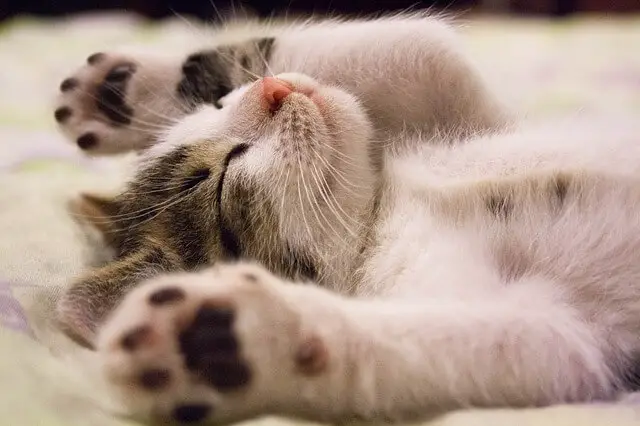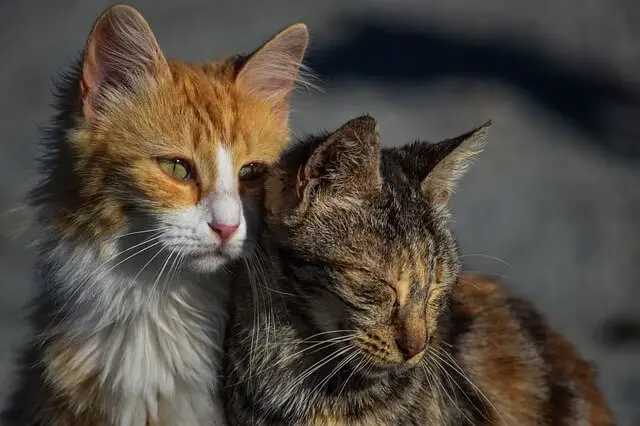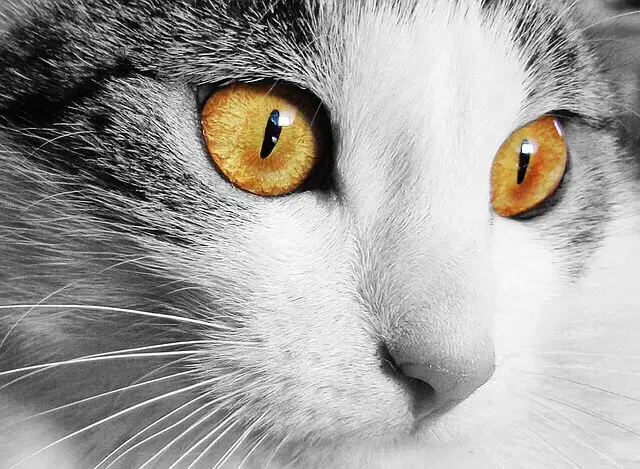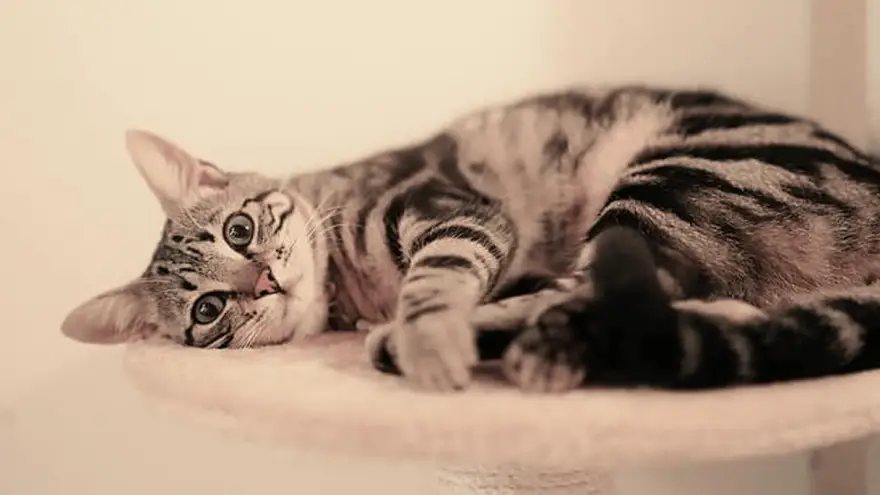Newest Study Shows How Long Do Cats Live
23.01.2022.
If you are a cat owner, you know how crazy we can be about our cats. We love them with all our hearts, and they become full members of our families. Naturally, most of us want to know how long do cats live. We want to know how much time we have with our beloved pets and if there’s anything we can do to make sure they stay with us as long as possible.
You should know different things can affect your cat’s longevity. Some of those things are lifestyle, breeding, nutrition, and breed. Many online sources tried to answer this question as precisely as possible. Here are some of the answers we found;
- 10 - 15
- 14
- 12 - 17
- Up to 20 years
- 12 - 18
Without thorough research that involves a large enough number of cats, we can only try to make an educated guess. Most of our team agrees that cats, on average, live 15 years. We will update this article as soon as we get more precise numbers. Until then, we will gladly say that most indoor cats live 15 years.

Cat life stages
Dogs have a pretty easy distinction when it comes to their life stages - puppy, adult, senior. However, cats have a more detailed description; they have 6 life stages, and they are different than dogs’ life stages. Here’s how they’re divided;
1. Kitten 0 - 6 months
A cat’s kittenhood is probably the most fun you’ll have with your cat. During this life stage, cats are very playful, hungry, sleepy, and very willing to learn. It is an ideal time to start teaching your cat about the world around them. You can expose your cat to different sights, sounds, smells, surfaces, cats, dogs, and humans. They’ll get used to that and will develop into well-rounded cats.
2. Junior 6 - 24 months
This is a period where kittens become a lot more serious. They won’t grow as much as they did in the previous life stage, but they will develop and reach their full size. They can still remain kitten-like, so it is essential to teach them that things they could do while they were kittens are no longer allowed. For example, play biting and scratching might be fine when they’re kittens, but a 1-year-old cat can inflict a lot of damage.
3. Prime 2 - 6 years
At this part of their lives, cats reach their prime. They are physically and mentally mature but are still considered young. Most cats don’t develop severe health issues in their prime, and this is where they will be at their best. If you’re looking to exhibit your cat, their prime is the best time for it.

4. Mature 7 - 10 years
This cat’s life stage is often described as humans in their 40s and 50s. Cats at this stage will start to gain some weight and become a bit less active. Regular vet visits are crucial at this stage. Make sure to control your mature cat’s food consumption.
5. Senior 10 - 15 years
This stage of your cat’s life is the same as humans at 70. The cat will still be vital, but it will need additional mental stimulation and physical activity. Cats at this age love to relax. They will enjoy napping in cozy window perches observing the world on the other side of the glass.
6. Geriatric 15+ years
Your vet should be your best friend at this stage of your cat’s life. You should keep a close eye on your geriatric cat and make sure it is as happy and healthy as possible. Make sure you notice behavioral changes, loss of energy, and frequency of going to the toilet. If you see anything out of the ordinary, call your vet and schedule an appointment.
How can I prolong my cat’s life?
This is one of the most common questions cat owners ask their vets. It is entirely understandable that we all want to keep our cats with us as long as possible. Most cat owners are willing to do whatever they can to ensure their cats remain in good health. Here are the things that will affect your cat’s life expectancy and what you can do about them;
1. Nutrition quality
The first thing that can help prolong your cat’s life is high-quality nutrition. Low-quality foods sometimes use artificial taste inhibitors, food colorings, or preservatives. These things are cancerogenic, which can significantly shorten your cat’s lifespan. Make sure your cat eats the best possible food with organic ingredients. That’s the best way to ensure the cat will get all the nutrients it needs.

2. Levels of physical activity
Lazy cats will have a shorter lifespan. Physical activity and exercise are proven ways to improve life quality and health. Cats that regularly exercise will have a stronger immune system, cardiovascular system, and cognitive abilities. All of those things are fantastic ways to prolong your cat’s life. You can do that by spending time with your cat, and a laser pointer- You should create a stimulating environment and provide your cat with places where it can climb, scratch, and run.
3. Proper grooming
Grooming is not only for show cats. Sure, grooming will make sure your cat looks its best, but it will also help prevent skin issues, parasite infections, ear infections, and issues like hot spots. Health issues can weaken the cat’s immune system, affecting its lifespan.
4. Breeding
Perhaps the most important thing for a cat’s lifespan is its breeding. If the cat comes from responsible breeders who regularly health test their breeding cats, it will probably live a lot longer than a cat from questionable breeding or cats that are a result of unplanned breeding.
5. Lifestyle
There is a massive difference in the average lifespans of indoor and outdoor cats. Indoor cats live, on average, 15 years, and outdoor cats only live 7. Outdoor cats are exposed to the elements, polluted water sources and food, predators, and other dangers like traffic. Keep an eye on your cat and make sure it lives its best life indoors.

6. Vet visits
Regular vet visits are crucial from the moment a kitten arrives in this world. The kitten needs to be vaccinated according to the recommended schedule, which will prevent them from getting infected with preventable diseases. Regular vet visits will allow your vet to spot early signs of diseases, which means they can react faster and start treatment.
In conclusion
Indoor cats live around 15 years on average. Different things can affect their longevity, like vet visits, breeding, and lifestyle. You can make sure your cat has the best possible start by getting it from a responsible breeder and ensuring the cat is well taken care of. Make sure to keep your vet close and ask them for advice whenever you need their advice.
World Cat Finder Team







Share